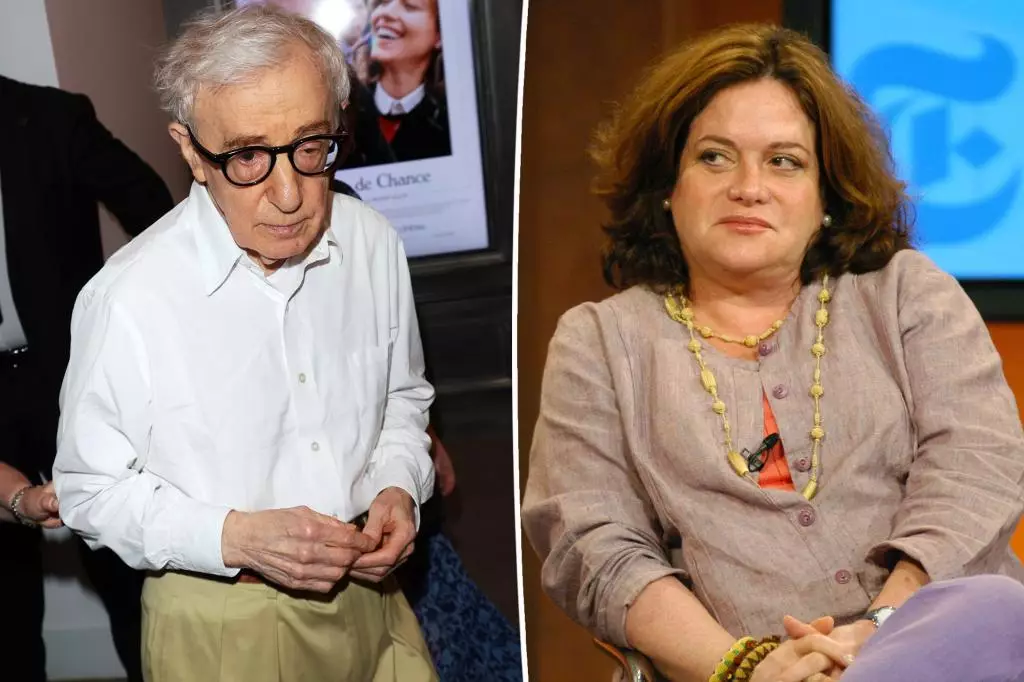In an unexpected twist, celebrated filmmaker Woody Allen made a rare public appearance at a literary launch event, sending ripples through the social circles that have long distanced themselves from him since the resurgence of unvalidated allegations during the #MeToo movement. The glitzy affair took place at the Upper East Side residence of renowned author and critic Daphne Merkin, where cocktail discussions often revolve around more salacious subjects. Allen, alongside his wife Soon-Yi Previn, mingled with literary elites, signaling both a defiance of social ostracism and offering a glimpse into the complex dynamics at play in contemporary culture.
The event was planned to showcase a new literary venture associated with the sex dating app Feeld, which has gained notoriety for its eclectic approach to modern relationships. Known as “the dating app for the curious,” Feeld offers users a spectrum of configurations, catering to varied sexual orientations and desires. This inclusive approach extends into their newly launched publication, humorously named AFM, an acronym that can stand for “A F**king Magazine” or “A Feeld Magazine.” Curated by prominent editors Haley Mlotek and Maria Dimitrova, the inaugural issue features contributions from respected authors, such as Jazmine Hughes and Susanna Moore, who explore themes of sexuality and identity in innovative ways.
While Allen’s presence at the gathering inevitably reignited debates surrounding artistic merit versus personal history, his attendance on such a charged occasion served as a reminder of the scrutiny faced by public figures amid evolving societal norms. His spirited interactions with attendees stood in stark contrast to the gravity of the accusations that have enveloped him for years. Even though Allen’s reputation has been tarnished, the fact that he remains welcomed in certain circles speaks to the complexities of artistic legacy and moral accountability.
The soirée was not solely defined by its most controversial guest. The atmosphere was charged with creative energy, highlighted by engaging readings from established figures like James Ivory and Tony Tulathimutte. The theme for this issue—“the pursuit of happiness”—offered a delightful diversion from the contentious backdrop of Allen’s career. Candace Bushnell, Molly Jong Fast, and other notable figures contributed to the vibrant discourse on relationships, sexuality, and happiness, reinforcing the notion that literature can foster meaningful conversations despite deep-seated disagreements among artists and audiences alike.
As the bi-annual magazine AFM rolls out into the public domain for $24, questions regarding the nexus of creativity, morality, and their intersection in our social fabric continue to loom large. While the event was a celebration of literature and the human experience, it also served to highlight the ongoing struggle for reconciliation in an era of heightened awareness around issues of power dynamics and personal responsibility. In this light, the gathering stands as both a tribute to literary prowess and a reminder of the shadows that linger in the backdrop of cultural dialogues.


Leave a Reply